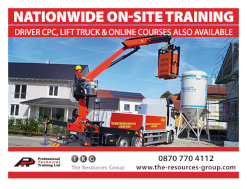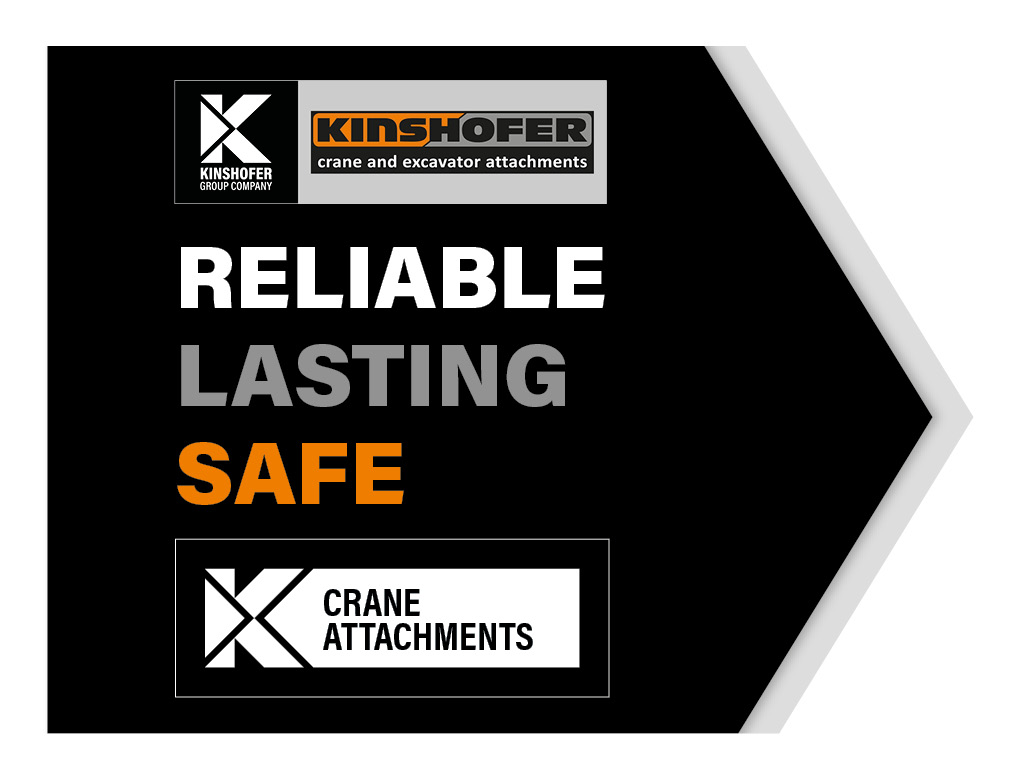Operator Training
Course Modules
Module 1: Course Introduction
Introduction to ALLMI, its history and objectives. An overview of the course modules, aims and objectives, as well as the assessments to be undertaken.
Module 2: Legislation
Legislation affecting lorry loaders, with emphasis on the role of the Operator. The Standards that provide guidance on how to comply with the law.
Module 3: Introduction to the Equipment
Lorry loader components and the function of a basic hydraulic system. Different configurations of lorry loader and control stations. How the rated capacity of lorry loaders is calculated and the safety systems required to be fitted.
Module 4: Pre-Operational Checks
The law surrounding pre-operational checks of lorry loaders and how such checks should be carried out and documented. Procedures for notifying faults, having repairs carried out and the importance of not using faulty machines.
Module 5: Operator Maintenance
Typical preventative maintenance that the Operator might be authorised to carry out, and the importance of documenting such work.
Module 6: Lifting Equipment / Attachments
Different types of attachment used with lorry loaders, with emphasis on the type being used for training and testing. The correct means of securing different attachments for safe travel.
Module 7: Siting the Lorry Loader
Key considerations upon arrival at a delivery site, including typical hazards that might prevent loader operation. The importance of establishing a cordon and checking to ensure the proposed lift falls within scope of the Lift Plan before proceeding or reporting to the Appointed Person for guidance.
Module 8: Deployment of Stabiliser Legs
The importance of, and correct procedure for, deploying stabiliser legs, including the use of suitable spreader mats. The implications if the lorry loader is not correctly stabilised.
Module 9: Use of Controls
How to interpret the control decals and the basic principles of safe and efficient lorry loader operation. The effects of rough use and excessive load swing on stability.
Module 10: Preparing the Lorry Loader for Use
The correct way to unstow the loader from the travel position and configure it for lifting duties.
Module 11: Operating the Lorry Loader
Checking load weight and radius against the rated capacity plate. Correct procedures for picking up, moving and depositing loads. Recognition of, and recovery from, an overload situation.
Module 12: Stowing Procedures
The correct way to stow and secure the lorry loader and stabilisers, and the importance of final checks before travel.
Module 13: Prepare for Assessment / Revision
Revision and practice to prepare candidates for the assessments.
Module 14: Assessments
Delivery of the assessments, both theoretical and practical.
Module 15: Final Administration & Candidate Feedback
Preparing course paperwork for submission to ALLMI and an opportunity for candidates to provide feedback on different elements of the course.
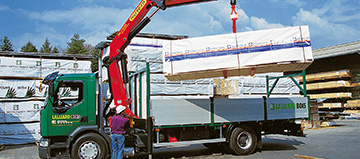 Manufacturers / Service Co.
Manufacturers / Service Co.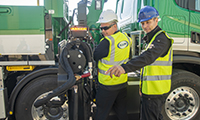 ALLMI Training
ALLMI Training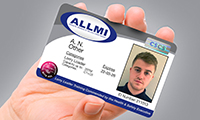 Verify a Card
Verify a Card Find a Training Provider
Find a Training Provider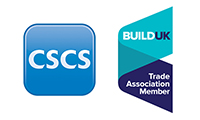 CSCS & Build UK
CSCS & Build UK HSE Recognition
HSE Recognition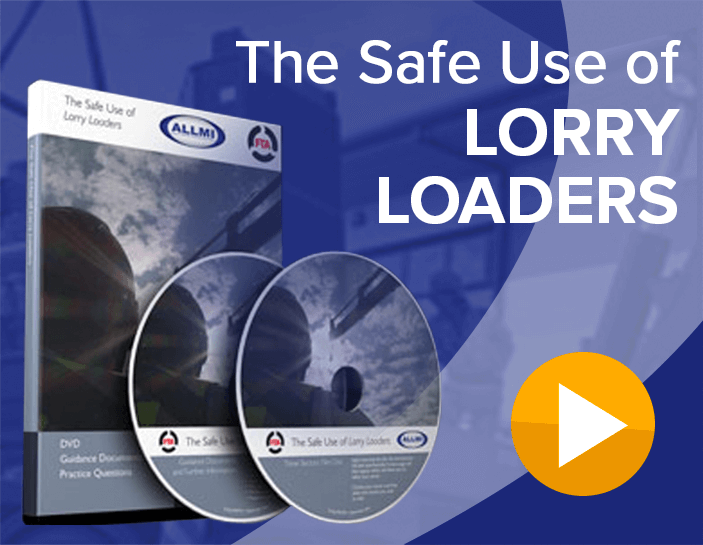 Safe Use of Lorry Loaders
Safe Use of Lorry Loaders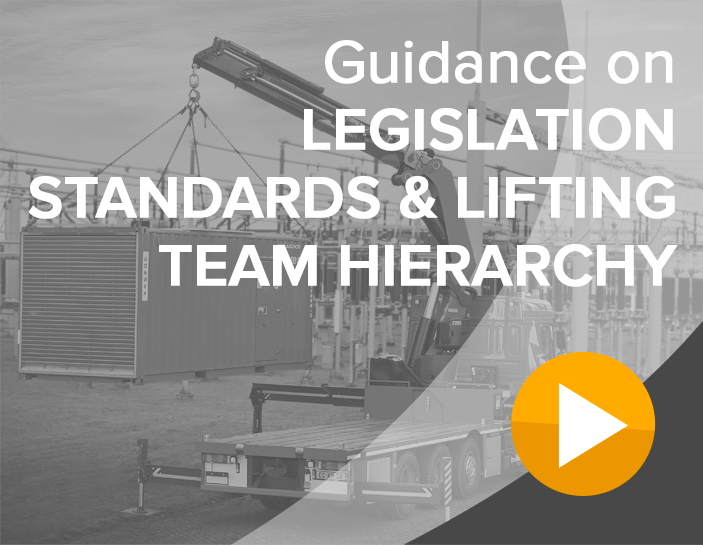 Legislation, Standards & Lifting Team Hierarchy
Legislation, Standards & Lifting Team Hierarchy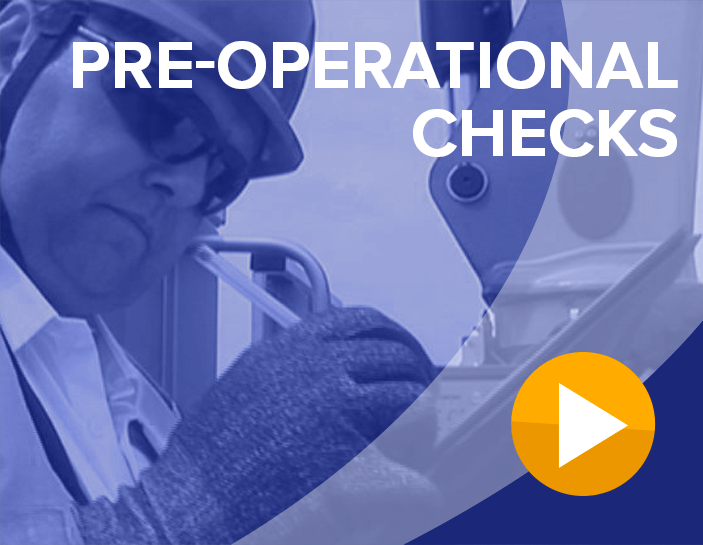 Pre-Operational Checks
Pre-Operational Checks  Safe Use of Remote Controls
Safe Use of Remote Controls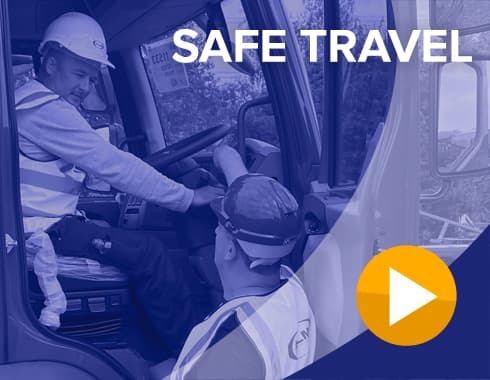 Safe Travel
Safe Travel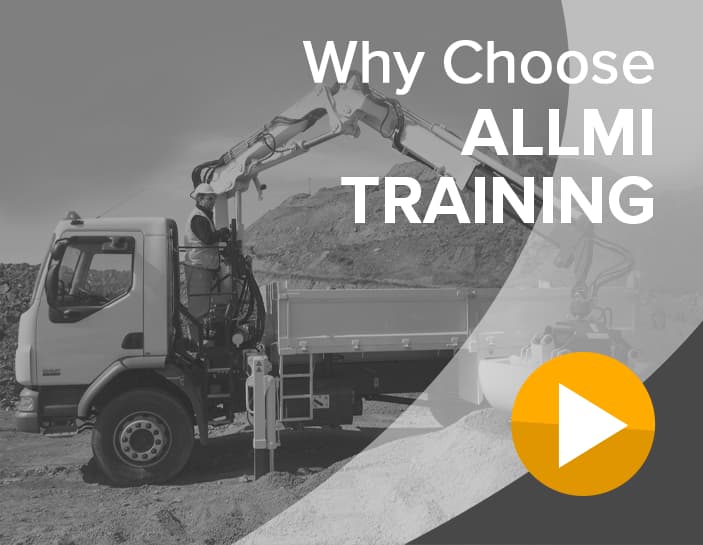 Why Choose ALLMI Training
Why Choose ALLMI Training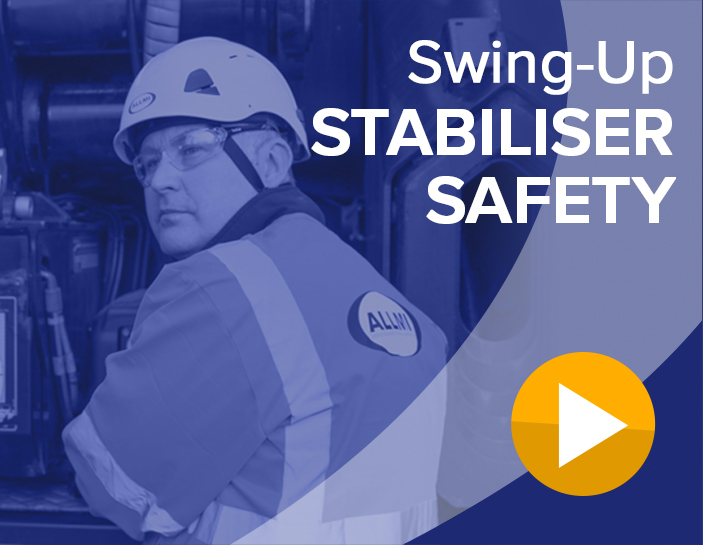 Swing-Up Stabiliser Safety
Swing-Up Stabiliser Safety
